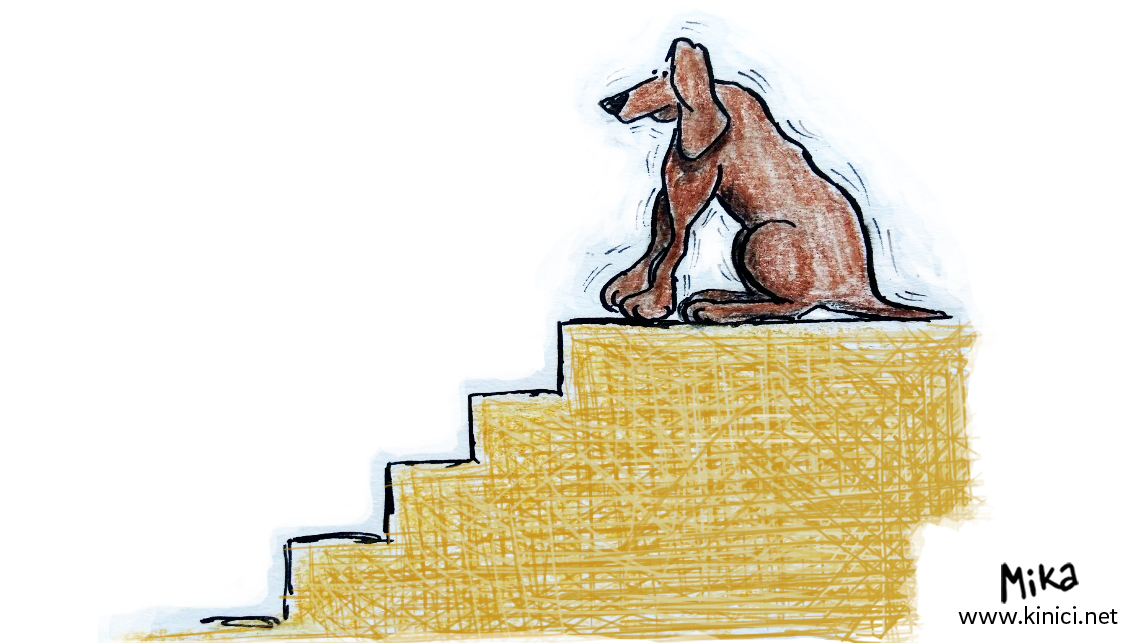The term phobia comes from greek word phobos, which means escape, terror, panic. The fear that is connected to some things, beings or situations that objectively are not the cause of danger. Unlike dogs, humans recognize the lack of objective danger while still avoiding the object that causes the fear.
 Any realistic fear can turn into a phobia when it overgrows. For instance, if someone asks you what do you feel when you hear: to be buried alive, the probable response would be "i've got chills". But this is not phobia. If your mind gets stuck on that thought, the phobia might develop. It is similar with dogs. If you give significance to something harmless which makes a dog discomfortable, for instance, it gets scared from a plastic bag that moves in the wind, it can easily develop a phobia and consider all plastic bags a threat.
Any realistic fear can turn into a phobia when it overgrows. For instance, if someone asks you what do you feel when you hear: to be buried alive, the probable response would be "i've got chills". But this is not phobia. If your mind gets stuck on that thought, the phobia might develop. It is similar with dogs. If you give significance to something harmless which makes a dog discomfortable, for instance, it gets scared from a plastic bag that moves in the wind, it can easily develop a phobia and consider all plastic bags a threat.
Serious bad experience is the most common cause of phobia. If a dog's mind is not capable to overcome it, the fear that came from some incident can turn into phobia. If the firecracker cracks, the dog stops and maybe feels discomfort, it is natural reaction. However, if its mind does not move on and leave it behind, as something that could have endanger it, but it did not, it is possible it will develop phobia.
The phobia can be so powerful that the dog will not be able to control its mind and as a result it can run away in panic, or yet freeze still. All dogs – both completely submissive and very dominant – can get into phobic state.
